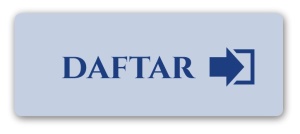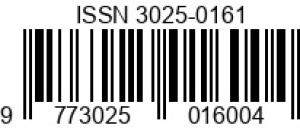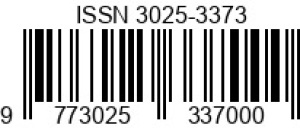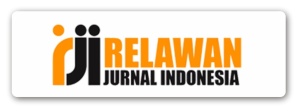Analisis Fatwa Dr. Syauqi Ibrahim ‘Allam Tentang Eksploitasi Ilegal Tanah Negara
DOI:
https://doi.org/10.61570/syariah.v3i1.129Keywords:
Fatwa, Dr. Syauqi Ibrahim Allam, Land exploitationAbstract
The dense population and growing economic needs are leading humanity toward a new way of life. One of the fundamental needs of every person is the need for a place to live and reside. The exploitation of state-owned land, whether in cities or the wilderness, has become inevitable. State land, which should be managed by the government and used for the welfare of society, is often seized and used for personal interests. Dr. Syauqi Ibrahim Allam, a grand mufti at the Egyptian fatwa institution, stated in his book Fiqh al-Wathan wa al-Muwathonah that using state land without permission is forbidden (haram) and is considered gasab (unlawful usurpation). He also urged those involved in such acts to vacate and return the land to its rightful authority. How did he determine the legal basis for his fatwa? What are the implications for Indonesia? This article reviews Dr. Syauqi Ibrahim Allam's perspective on the illegal use of state land, a practice now common in Indonesia, as a moral and ethical compass. To analyze this, the author employs descriptive analysis within the framework of qualitative research methodology.The findings indicate that Dr. Syauqi Ibrahim Allam's fatwa is well-grounded in religious texts and is also supported by the views of Ahlus Sunnah scholars from the four major schools (madhabs), with a particular alignment to the Hanafi school, which strictly requires permission from the leader (imam) for the use of state land. He equates the illegal use of state land to the gasab of private properties. This fatwa is crucial for public understanding, given the numerous issues arising from land disputes with the government.
References
Abu Daud, Sunan Abi Daud, Maktabah al-Ashriyyah, Beirut.
Abu Manzur, Lisan al-‘Arab, Dar ash-Shadir, Bairut.
Adrian Sutedi, Peralihan Hak Atas Tanah dan Pendaftarannya, Sinar Grafika, Jakarta, 2007.
Al-Bukhori, Shahih al-Bukhari, Dar thauq an-Nuhat.
Al-Mulla Ali al-Qari, Mirqah al-Mafatih, Dar al-Fikr, Beirut.
Al-Allamah al-Bahutiyy, Daqaiq Uli an-Nuha, Alm al-Kutub.
An-Nawawi, al-Majmu’ syarh al-muhadzab, Dar al-Fikr, Beirut.
As-Syarakhsyiyy, al-Mabsuth, Dar al-Ma’rifah, Beirut.
As-Syirbini, Mughni al-Muhtaj.
Fatimah Al Zahra, Melacak Landasan Hukum Pengelolaan Aset Tanah Negara melalui Konsep Bank Tanah, Al-Ihkam: Jurnal Hukum dan Pranata Sosial , No. 2, Desember 2017. https://doi.org/10.19105/al-lhkam.v12i2.1306.
https://www.dar-alifta.org/ar/IslamicArticle/5041.
https://badilag.mahkamahagung.go.id/artikel/publikasi/artikel/kekuatan-hukum fat wa-majelis-ulama-indonesia-mui-dari-perspektif-peraturan-perundang-unda ngan-di-indonesia-oleh-al-fitri-johar-s-ag-s-h-m-h-i-11-1.
Ibnu Asyur, at-Tahrir Wa at-Tanwir, ad-Dar at-Tunisiyyah, Tunis.
Ibnu Qudamah, al-Mughni, Maktabah al-Qahirah.
Karli, Tindak Pidana Memakai Tanah Tanpa Ijin Yang Berhak Atau Kuasanya Menurut Undang-Undang No 51/Prp/1960 Pasal 6 Ayat 1 Dihubungkan Dengan Putusan Nomor 349 / Pid.C / 2007 Pn Indramayu (Study Kasus Terdakwa Rajab Bin Harun) TESIS, 2014. http://digilib.iblam.ac.id/362/1/ pdf%2CTesis%20Karli%20NPM% 2020040012067.pdf.
Malik, al-Muwatho’, Dar Iḥyā’ Turats al-Arabiyy, Beirut, Muslim, Shahih Muslim, Dar Iḥyā’ Turats al-Arabiyy, Beirut.
Ridwan Nurdin, Keabsahan Pendapatan Pada Tanah Milik Negara Dalam Perspektif Milk ad-Daulah, Jurnal al-Mudharabah. https://doi.org/10.22373/al-mudharabah.v2i1.813.
Syauqi Ibrahim Allam, Fiqh al-Wathan wa al-Muwathonah, Dar al-Ifta al-Mishriyyah, Mesir.
Zakariyya al-Anshariyy, al-Ghurar al-Bahiyyah, al-Mathba’ah al-Maimaniyyah.
Downloads
Published
Issue
Section
License
Copyright (c) 2025 Mohammad Hassan Al Wafa, Nurhakim

This work is licensed under a Creative Commons Attribution-NonCommercial-ShareAlike 4.0 International License.
















